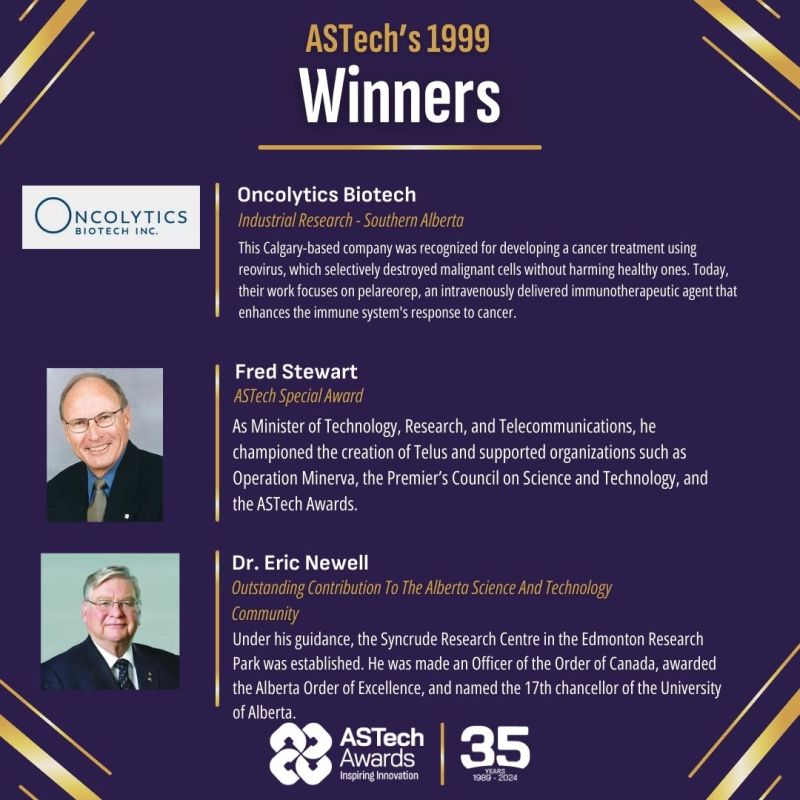Additional 1999 Winners Include:
- Waldemar Maciejewski, recognized with the Innovation in Oil Sands Research Award, for contributions that included the “cycloseparator” for bitumen separation, and innovations in hydraulic transport and oil sands crushing technology – establishing him as a leading authority in the field.
- The Dinosaur Country Science Camp, awarded for Excellence in Science and Technology Public Awareness, provided a dynamic learning environment where students engaged in hands-on scientific activities and research each summer. Operated by the Drumheller Regional Science Council, the camp offered immersive programs in various scientific disciplines such as paleontology, geology, and archaeology, allowing campers to contribute real data to scientific studies. With a staff largely composed of former campers who later pursued science degrees, the camp fostered a strong community of budding scientists.
- Connie Bryson, honoured with the Journalism Award for Specialized Publications, became Alberta’s premier scientific writer through her engaging and accurate portrayal of science, technology, and business topics. Her skill in simplifying complex scientific concepts for general audiences was reflected in work for major organizations such as the Alberta Heritage Foundation for Medical Research, NSERC, and Syncrude, as well as publications like The Globe and Mail.
- Dr. Wayne Grover, recipient of the ASTech Outstanding Leadership in Alberta Technology award, is celebrated for his groundbreaking work in self-healing telecommunications networks, which mitigate disruptions caused by cable failures, ensuring uninterrupted transmission of vital data worldwide. Dr Grover served as Professor, Electrical and Computer Engineering, at the University of Alberta. His pioneering research, including innovative network design techniques and the concept of ‘p-cycles’. He is a Fellow of the Royal Society of Canada, a Fellow of the Engineering Institute of Canada and a recipient of the IEEE Baker Prize Paper Award and IEEE Fellow, among other numerous awards.
- Dr. David Schindler received the award for Outstanding Leadership in Alberta Science for his research into the human impact on freshwater ecosystems. His studies were critical to the success of the U.S./Canada agreement to clean up the Great Lakes and to control the long-range transport of atmospheric pollutants between the two countries. Based on his work, every country in the western world now manages the level of phosphorous in freshwater. Dr. Schindler published more than 200 papers in international scientific journals. Schindler was Canada’s first winner of the international Volvo Environmental Prize for his work in this field. Dr. Schindler was a professor of Ecology in the Department of Biological Sciences at the University of Alberta, and in 2008 was inducted into the Alberta Order of Excellence.
|
|

